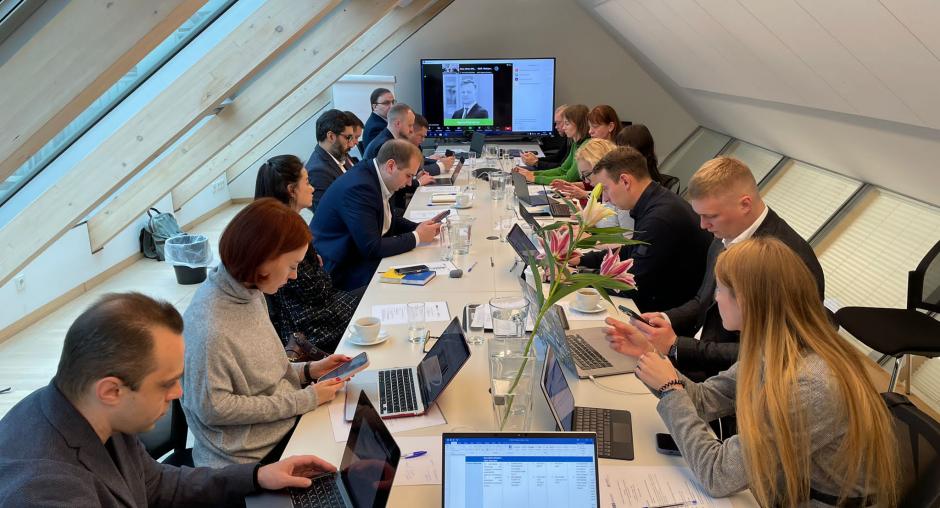Experts from Ukraine discuss virtual assets regulation at OSCE-UNODC joint workshop

Experts and legislators from Ukraine took part in a workshop on national virtual assets legislation organized by the Office of the Co-ordinator of OSCE Economic and Environmental Activities (OCEEA) in partnership with the United Nations Office on Drugs and Crime (UNODC) from 5 to 7 December, in Vienna, Austria.
Participants of the workshop held constructive discussions on current international, European and Ukrainian legal frameworks, as well as on potential challenges and opportunities of virtual assets management in law enforcement and judicial activities, among other topics. The experts also discussed international experience in seizure and confiscation of virtual assets, and procedures and regulations regarding the sale of confiscated virtual assets.
Virtual assets and cryptocurrencies have the potential to provide fast and cost-effective alternatives to traditional means of value transfer, but without adequate regulation they could become tools for criminals and terrorists to hide and launder the proceeds of crime. OCEEA, in partnership with the UNODC is currently implementing an extra-budgetary project providing technical and legislative support to the governments of Georgia, Moldova and Ukraine in mitigating money-laundering risks of cryptocurrencies and virtual assets.
“Efficient, precise legislation that prevents and combats money laundering through virtual assets is fundamental to preventing criminals from laundering illicit proceeds. Ukraine is one of the countries where cryptocurrencies went mainstream among the population. There is a dark side of it, too, that is why it is essential for the legislators to be ready for the challenges that lie ahead,” said Lorenzo Rilasciati, Senior Economic Officer, OCEEA.
The workshop was attended by 20 experts and legislators. The project is funded by the United States, Germany, Poland and the United Kingdom.
